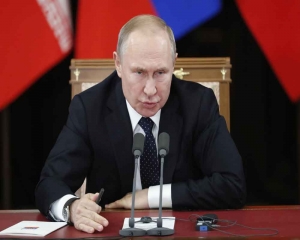Reward and punishment can be easily employed as tools to ensure good governance with high success rate
Benthamite calculus of pains and pleasures presents an ethical theory holding that actions are morally right if they tend to promote happiness and morally wrong if they tend to promote unhappiness (probably meaning that undesirable actions should be dealt with properly for the sake of happiness).When an event increases the frequency of a response that follows, the event is called a reward; if the event reduces the frequency of the response that it follows, the event is called a punishment.
Benthamite utilitarian theory projects the concepts as such in terms of pleasure and pain or simply as happiness and unhappiness among all those affected by them meaning be it the society or nation or a single individual.B.F Skinner developed the concept of operant conditioning which is a way of learning by means of reward and punishment. It holds that certain behaviour and consequence, either a reward or punishment have a connection and has an impact on behaviour.
The role of reward and punishment is significant not only in educational institutions, workplaces, and corporate sectors but also in the governance of the country also. Selected actions, with due attention to spatial and temporal implications and concerns, if mandated properly, not only herald positive results but also catalyze welcome solutions. Action so executed may be in form of a reward or punishment.
Punishment, apart from acting as a deterrent and checking the happening of an undesirable event, also takes one of these forms to control the events. Specific deterrence prevents crime by frightening an individual with punishment. General deterrence prevents crime by frightening the public with the punishment of an individual defendant. Other theoretical connotations of punishment are Incapacitation which prevents crime by removing a defendant from society. Rehabilitation prevents crime by altering a defendant's behavior. Retribution prevents crime by giving victims or society a feeling of avengement.Restitution prevents crime by punishing the defendant financially. Whatever may be the manifestation, punishment is in consonance with the Constitution, Laws of the land and Indian penal code, Criminal procedure code, etc(Criminal jurisprudence). The Constitution of India pronounces equality
before the law and as such nobody is above the law or punishment.
Reward as a motivational tool has been recognised by sociologists, Psychologists, and leaders. Be it the society, educational institutions, corporate sectors, or government, the importance of the concept of reward for good work cannot be undermined. In the case of rewards generally, there are two kinds of rewards: Extrinsic rewards: concrete rewards that an employee or an institution receives which are also called tangible rewards. Intrinsic rewards tend to give personal satisfaction to an individual which is also called intangible benefits. Now in administration how the concept of reward and punishment be used as motivational tools for fostering tranquility in maintaining law and order and registering economic growth? Keeping Maslow's theory of motivation in view, punishment can be used as a deterrent in providing for the security needs of the people, and the concept of reward can be utilised to work as a motivation for officers and field workers to do exemplary work to cater to needs like food and water, etc. of the poverty-stricken people that is to eradicate poverty and to augment growth. Similarly, industry and tertiary sectors including the corporate sector can be put in developmental orbits to register socio-economic growth and transformation. Here comes the million-dollar question as to what ails our society/ nation. With a democratic setup replete with heterogeneity, religious and ethnic plurality, linguistics, cultural and social diversity (economic divide), and mushroom growth of regional parties, deterioration in political morality, and its criminalisation; our country has become vulnerable to onslaught/conspiracy both at intra-national and international level.
What is the solution?
When it is the question of the sovereignty and integrity of the nation and its growth and development, hard decisions and actions are desirable and acceptable. Timely action (and punishment for activities detrimental) is the call of the hour. The pandemic and situation concerning the security of the nation invite invoking of punishment for the wrongdoers.
The role of reward also cannot be underestimated. Positive work at the level of a state or officer or individual should be recognised and rewarded with tangible or intangible connotations. To conclude, our nation is going through a very difficult time so also the world is facing the hardest time. The time has come for each one of us to contribute to the collective wellbeing and to project that we are one when we fight united.
(The author is a superannuated senior IAS officer. The views expressed are personal.)


























